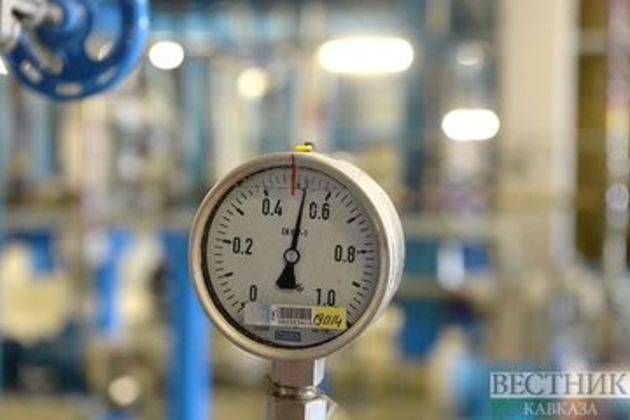Nowadays, natural gas has become one of the important factors that lead to economic and social growth. Diversification of natural gas supplies and routes, securing access to energy-rich regions, and guaranteeing reliable gas exports to energy markets are major goals of gas producers and consumers. As Eurasia Review writes, in this regard, Azerbaijan with a total proved 2.8 trillion cubic meters of natural gas is a key actor to supply the Caspian natural gas directly to the European energy consumers.
Analyzing Azerbaijan’s natural gas sector, it is worth noting that natural gas exploration, development, and production defer with complexity because energy companies are usually aimed at developing gas fields with vast gas reserves. Towards this end, Azerbaijan has implemented a successful energy policy to develop its natural gas sector and protect national interests. Today, many international energy companies are engaged in the natural gas sector of the country. It should be underlined that BP is the biggest foreign investor in Azerbaijan’s energy sector, and the development of Shah Deniz Stage 1 and Stage 2 allowed Azerbaijan to be an important natural gas producer in the region. BP and SOCAR continue successful cooperation, and following the joint exploration work, the first gas-condensate reserves have been discovered in the Shafag-Asiman block in the Azerbaijani sector of the Caspian Sea.
Meanwhile, Shah Deniz 2 is also the starting point for the Southern Gas Corridor (SGC) series of pipelines that are supplying natural gas from the Caspian Sea directly to the European and Turkish energy consumers. Shah Deniz 2 Phase is expected to produce around 16 billion cubic meters (bcm) of gas per year, and with the current Shah Deniz gas production, additionally, gas reserves in Shafag-Asiman, Umid and Nakhchivan fields, Azerbaijan will strengthen its position as a net gas exporter. All the above-mentioned facts show that the expected gas reserves of the country are much higher, and the country will play an important role in terms of natural gas supply to the European energy markets.
2020 was the most dynamic and remarkable year for Azerbaijan as the country restored its territorial integrity after the Second Karabakh War and completed the European segment of the SGC – the Trans-Adriatic Pipeline (TAP). It should be especially highlighted that the Armenian attacks against Azerbaijan’s critical energy infrastructure could not prevent the realization of the TAP project. The first Azerbaijani gas was delivered to Europe on 31 December 2020. TAP pipeline is a very strategic project because it supports Europe’s energy security and decarbonization efforts. Completion of all segments of the SGC allowed Azerbaijan to supply natural gas to different energy markets and also strengthen its position in the Caspian region.
Following the natural gas supply to the European energy markets, during January-April of the current year, Azerbaijan increased natural gas exports up to 79,5% in comparison with the same period of 2020. The increase in natural gas export is directly connected with the volume of the Azerbaijani gas to the European energy markets. Within 2021 four month about 954 million cubic meters of Azerbaijani gas have been supplied to the European energy markets. In this context, Italy (734 million cubic meters) was the largest buyer of Azerbaijani gas, and the remaining volumes were delivered to Greece (128 million cubic meters) and Bulgaria (92 million cubic meters). The Azerbaijani budget received around 196 million of dollars from those gas exports. In addition, during the same period, the country has exported around 5.145 bcm of gas to Turkey and 1.737 bcm to Georgia.
Natural gas exports affect positively on energy revenues of Azerbaijan because the outbreak of the COVID-19 pandemic negatively affected global energy markets. Azerbaijan accepted oil production cuts under the OPEC+ agreement. As a result, low oil prices and production cuts affected the economic performance of the country.






